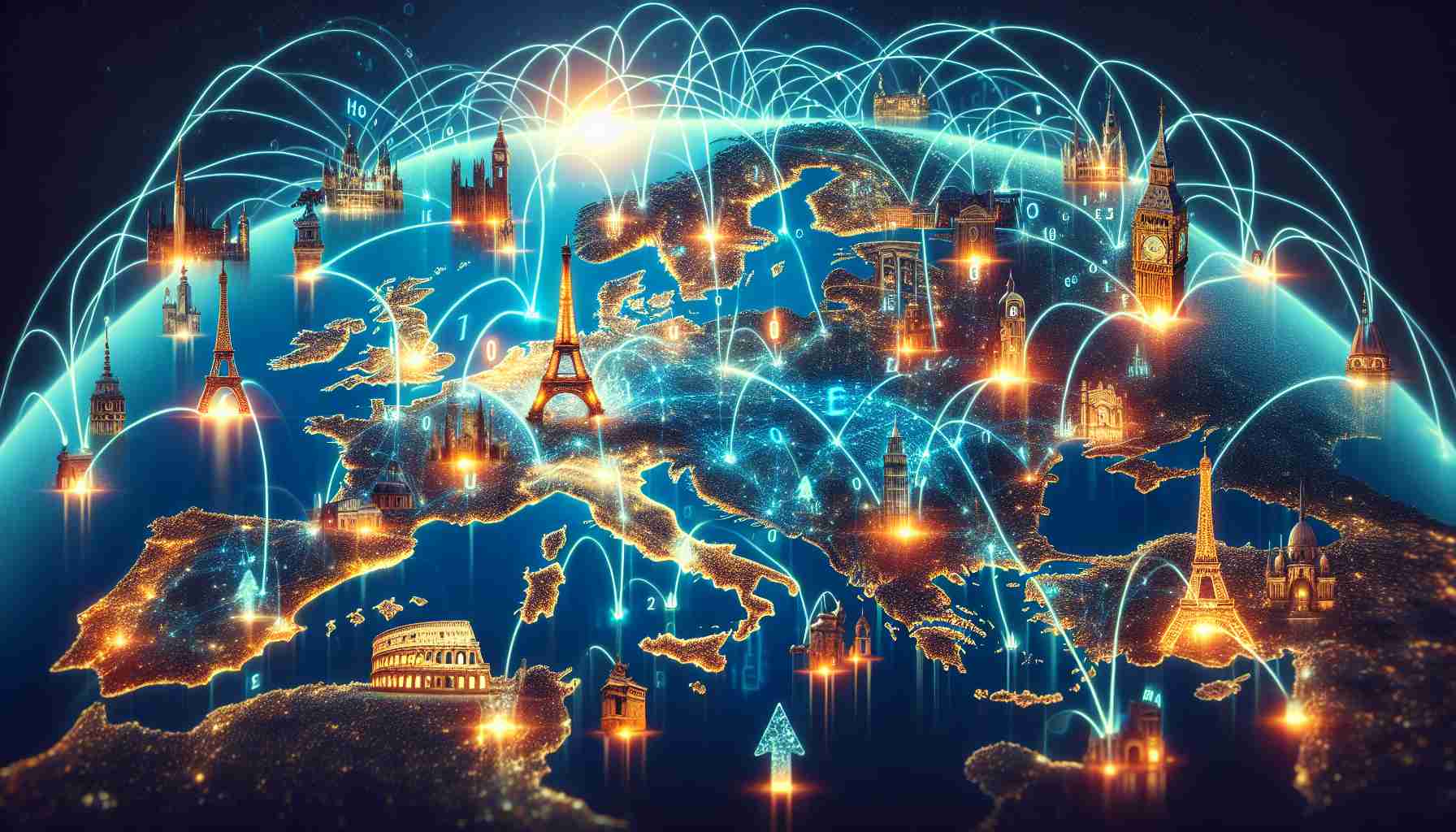Data consumption via mobile devices surged significantly across various European and Middle Eastern nations in the latest year. Notable spikes were recorded in countries like the Czech Republic, Germany, Portugal, and the Netherlands, with Greece leading the pack with a remarkable 49% increase.
One interesting outlier was Bahrain, where data usage actually decreased by 7%, contrasting sharply with the general trend of growth in the region.
Despite the substantial surge, Greece still lags in overall data usage, ranking 26th among the surveyed countries. In comparison, Saudi Arabia stands out as the leader with a staggering 45.2 gigabytes per SIM card.
The rise in data consumption in Greece can be attributed in part to the significant drop in costs. Figures from Greece’s EETT reveal that the cost of data plummeted from €8 per gigabyte in 2015 to a mere €0.80 in 2023.
Consequently, Greece witnessed a 31% decline in data revenue for the year, mainly fueled by the proliferation of unlimited data package offerings.
The Surge in Digital Connectivity Across Europe and its Impact on Society
As digital connectivity continues to expand across Europe, countries are experiencing varying degrees of growth in data consumption and mobile connectivity. While the previous article highlighted some key trends, there are additional facts and questions that delve deeper into the implications of this surge.
What are the driving factors behind the surge in digital connectivity?
The surge in digital connectivity across Europe can be attributed to several key factors. One significant driving force is the increasing affordability of data services, as seen in Greece where the cost of data plummeted from €8 per gigabyte in 2015 to €0.80 in 2023. This drastic reduction in costs has made data more accessible to a wider population, leading to an uptick in data consumption.
Another factor contributing to the surge is the rapid advancement of technology, with the rollout of 5G networks and the proliferation of smart devices enhancing connectivity and enabling faster data speeds. As more people adopt smartphones and connected devices, the demand for data services continues to grow, fueling the surge in digital connectivity.
What are the key challenges associated with the increase in data consumption?
One of the major challenges associated with the surge in data consumption is the strain it puts on existing network infrastructure. As more people use data-intensive applications and services, telecommunications companies face the challenge of upgrading their networks to cope with the increased demand. This can lead to issues such as network congestion, slow speeds, and connectivity disruptions, impacting the overall user experience.
Another challenge is ensuring data security and privacy in an increasingly connected world. With the rise in data consumption comes a greater risk of cyber threats and data breaches, highlighting the importance of implementing robust security measures to protect user data and sensitive information.
Advantages and Disadvantages of Increased Digital Connectivity
Advantages:
– Enhanced communication: Increased digital connectivity allows for seamless communication and collaboration, enabling individuals and businesses to connect across borders and time zones.
– Access to information: Greater connectivity means access to a wealth of information and resources online, empowering users with knowledge and opportunities for learning.
– Economic growth: The surge in digital connectivity can stimulate economic growth through the expansion of digital services, e-commerce, and tech innovation.
Disadvantages:
– Digital divide: Not everyone has equal access to digital connectivity, leading to a digital divide between urban and rural areas, as well as socio-economic disparities.
– Cybersecurity risks: With increased connectivity comes greater exposure to cyber threats and vulnerabilities, posing risks to personal data and privacy.
– Overreliance on technology: Excessive reliance on digital connectivity can lead to issues such as screen addiction, reduced face-to-face interactions, and mental health concerns.
In conclusion, the surge in digital connectivity across Europe presents both opportunities and challenges for society. By addressing key issues such as network capacity, security, and digital inclusion, countries can harness the benefits of increased connectivity while mitigating potential risks.
For more information on digital connectivity trends in Europe, visit European Union official website.























